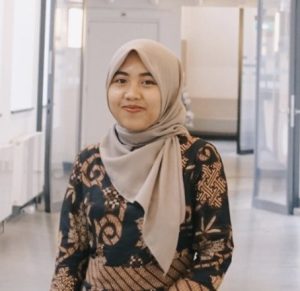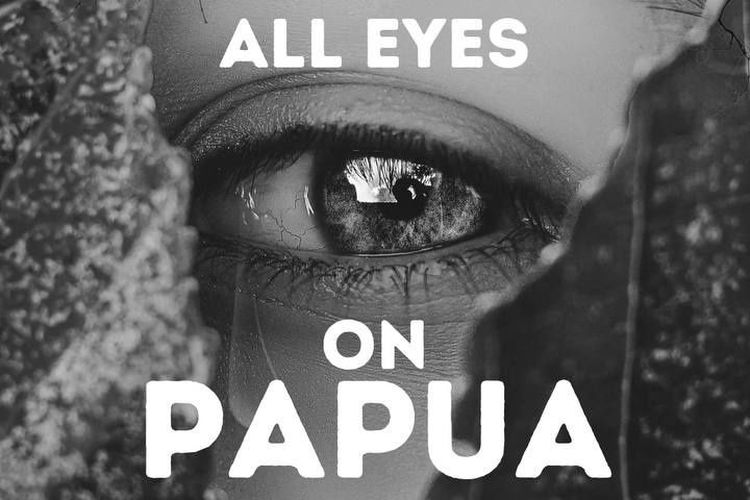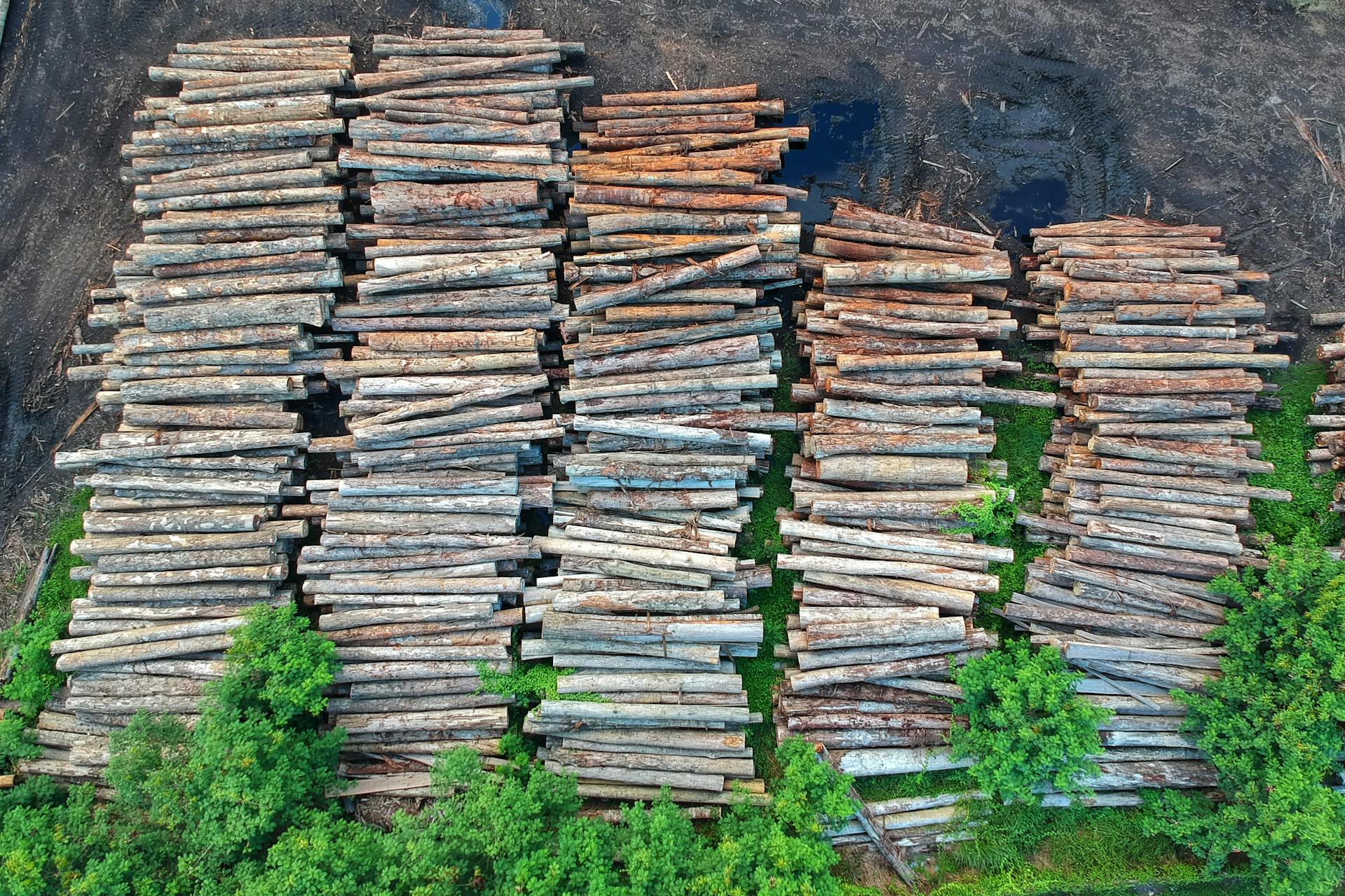
Delasari Krisda Putri
Legal Fellow
Imagine waking up one day to find your home, your heritage and your livelihood ripped away, all in the name of profit. For indigenous people in Papua, this is the terrible reality as they deal with relentless land confiscation and environmental devastation.
Recently, the Papuan government issued an environmental feasibility permit to PT Indo Asiana Lestari (IAL), covering 36,094 hectares of customary forest belonging to the Woro clan of the Awyu tribe. This permit, granted by the Papua Province Investment and One-Stop Open Service Office, allows IAL to convert these lands into palm oil plantations. In response, several Papuan community alliances called for an immediate review and revocation of all mining, plantation, and forestry permits. Their concern is that environmental permits granted to palm oil companies could seize their customary forests and trigger deforestation.
The ‘All Eyes on Papua‘ campaign has also become popular on social media in Indonesia. Focusing on drawing attention to the continuous fight of Papuan indigenous people against the Indonesian government and palm oil corporations, messages from the campaign urge Mahkamah Agung (Indonesia’s highest court) to issue a ruling to protect PapuaŌĆÖs customary forests. This call received more than 38,000 tweets on X and was reposted by 3 million Instagram users.
The Rights of Indigenous Communities
We have been tormented for years by the threat of our traditional forests being replaced by palm oil plantations. We want to raise our children with the help of nature, and the food and materials we harvest from the forest. Palm oil will destroy our forests, we reject it.
Rikarda Maa, an Awyu Indigenous Woman, in reference to the ongoing struggle
The concerns of the indigenous communities are grounded in both national and international legal protections.
The 1945 Indonesian Constitution acknowledges the need to protect the cultures and rights of indigenous peoples. Article 28I asserts, “[t]he cultural identities and rights of traditional communities shall be respected in accordance with progressing times and civilization.” The recognition of communal land rights as a part of cultural rights is also mentioned in several national laws.
According to Article 6 of Law No. 39 of 1999 Concerning Human Rights, ŌĆ£the cultural identity of indigenous peoples, including indigenous land rights, must be upheld, per the development of the times.ŌĆØ┬Ā This law emphasises that securing cultural identities, including traditional land, is a fundamental human right for Indigenous peoples.
Under international law, all people have the right to dispose of their natural resources and pursue their economic, social, and cultural development, as guaranteed by the International Covenant on Economic, Social and Cultural Rights (ICESCR) and the United Nations Declaration on the Rights of Indigenous Peoples (UNDRIP).
The Struggles of the Papuans
Despite these legal protections, Papuans have been forcibly removed from their homes, and struggle to access to basic necessities like food, water, and medicine. Even worse, they face the erosion of their cultural heritage due to the loss of forests. These projects not only displace indigenous peoples, but also inflict considerable environmental damage, including the projected release of 25 million tonnes of CO2 by 2030, equating to 5% of Indonesia’s carbon emissions.
For Papuans, forests are not just land and trees but a source of life with cultural value.
Based on research by the Yayasan Pusaka Bentala Rakyat in 2023, from 2001 to 2019 natural forest cover across Tanah Papua shrank by 663,000 hectares. Boven Digoel, where the Awyu tribe lives, had the second highest deforestation rate in Papua during that period. The organisationŌĆÖs research revealed at least 51,000 hectares of forest in Boven Digoel was deforested or converted.
For Papuans, forests are not just land and trees but a source of life with cultural value. The land is considered a mother who provides all needs. The loss of their ancestral landŌĆÖs strips them of their economic foundation, severs their deep-rooted connection to their heritage and identity, and violates their cultural, ┬Āeconomic, and social rights.
The violent eviction of indigenous Papuans from their lands for palm oil and sugarcane plantations severely disrupts their social and economic conditions, as well as being a breach of environmental justice. This violates their rights to an adequate standard of living, including adequate food, clothing, and housing, protected in ICESCR Article 11. It also prevents the effective enjoyment of their right to dispose of their natural resources and pursue their economic, social, and cultural development, as guaranteed by Articles 1 of the ICESCR and 26 of the UNDRIP.
Land confiscation and environmental devastation without consultation also contradicts the principle of Free, Prior, and Informed Consent (FPIC), which is recognised as a cornerstone of Indigenous rights and articulated in Articles 10 and 32 of the UNDRIP. According to these provisions, before any project harming their lands or resources is granted permits, indigenous peoples must be notified and give permission.
[The Indonesian government] must review and revoke damaging permits, implement protective regulations, and restore the rights of indigenous peoples.

Although the Indonesian government has not adopted UNDRIP, indigenous peoplesŌĆÖ land property rights and the protection standard articulated in this treaty are considered a norm under international law. ┬ĀTherefore, the Indonesian government should not disregard this principle and needs to protect the rights of indigenous Papuan communities from land confiscation and environmental devastation. It must review and revoke damaging permits, implement protective regulations, and restore the rights of indigenous peoples.
These violations highlight the urgent need for action to protect the rights and livelihoods of Indigenous Papuan communities and movements should not stop at getting petition signatures or social media reports. The Awyu Tribe’s case is just the tip of the iceberg of many Indigenous peoples experiencing similar conditions.┬Ā Protecting their rights is not only a matter of justice but it is also essential for preserving their cultural heritage and ensuring environmental sustainability.
Moreover, defending Indigenous rights is critical to protecting human rights for everyone because it resolves past wrongs, ensures access to necessities, fights discrimination, and upholds justice, equality, and respect for the dignity of all people and communities.
The global community must recognise and support their fight to ensure a fair and respectful future for all Indigenous peoples.
To learn more about human and environmental harms in palm oil production, listen to our interview with campaigner and author of Planet Palm, Jocelyn Zuckerman, on the Just Access Podcast




1 Comment
Thank you for this excellent article It was very helpful and informative.
’╗┐
’╗┐
’╗┐